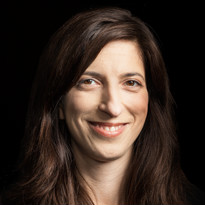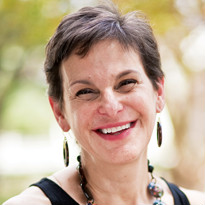Susan Dominus is a staff writer at the New York Times Magazine.
"A lot of reporting is really just hanging around and not going home until something interesting happens."
Thanks to TinyLetter for sponsoring this week's episode.
Showing 25 articles matching fk33.cc_What is the price of magnesium sulfate pentahydrate in China.
Susan Dominus is a staff writer at the New York Times Magazine.
"A lot of reporting is really just hanging around and not going home until something interesting happens."
Thanks to TinyLetter for sponsoring this week's episode.
Apr 2014 Permalink
 Pamela Colloff is an executive editor and staff writer at Texas Monthly.
Pamela Colloff is an executive editor and staff writer at Texas Monthly.
"That sense of loss, that sense of normal life turning on a dime is something that, in a very different way, I’ve experienced. And I carry that with me into some of the more difficult stories."
 Mimi Swartz has written for Talk, The New Yorker and Vogue. She is an executive editor at Texas Monthly.
Mimi Swartz has written for Talk, The New Yorker and Vogue. She is an executive editor at Texas Monthly.
"Here’s this great [public interest] story that nobody’s ever told. Now how can I write it so the maximum number of people want to read it? I try to make the homework part as interesting and compelling as possible."
Thanks to TinyLetter and PillPack for sponsoring this week's episode.
Show notes:
Show notes:
Mar 2014 Permalink
Craig Mod is a writer and photographer. His podcast is On Margins.
“You pick up an iPad, you pick up an iPhone—what are you picking up? You’re picking up a chemical-driven casino that just plays on your most base desires for vanity and ego and our obsession with watching train wrecks happen. That’s what we’re picking up and it’s counted in pageviews, because—not to be reductive and say that it’s a capitalist issue, but when you take hundreds of millions of dollars of venture capital, and you’re building models predicated on advertising, you are gonna create fucked-up algorithms and shitty loops that take away your attention. And guess what? You need to engage with longform texts. You need control of your attention. And so I think part of what subverted our ability to find this utopian reading space is the fact that so much of what’s on these devices is actively working to destroy all of the qualities needed to create that space.”
Thanks to MailChimp for sponsoring this week's episode.
Apr 2018 Permalink
Elon Green is a journalist whose work has appeared in The New York Times Magazine, The Awl, New York, and other publications. His new book is Last Call: A True Story of Love, Lust, and Murder in Queer New York.
“The murders and the murderer should not be the driver. It should simply be the catalyst for the other story. And the other story is the victims. And the other story is the political backdrop and the environment that they are walking through.”
Thanks to Mailchimp for sponsoring this week's episode.
Mar 2021 Permalink
The story of two weeks when the most wanted man in the world was hidden in the depths of a Hong Kong slum.
Theresa Tedesco National Post Sep 2016 15min Permalink
David Marchese is the interviewer for New York's "In Conversation" series.
"The thing I like about doing long interviews with people is that each one feels like a totally unique experience to me. It’s not like I go into an interview and already know the arc of the story I’m going to tell, and I’m going to just fill that in the best I can. I have ideas of what to talk about and what the conversation might entail, but it does feel like I’m starting at zero and the conversation can go anywhere.”
Thanks to MailChimp, Read This Summer, Google Play, and Pitt Writers for sponsoring this week's episode.
Aug 2018 Permalink
Chris Heath, winner of the 2013 National Magazine Award for Reporting, is a staff writer at GQ.
"I present myself as someone who is going to be rigorous and honest. And if you can engage in the way I'm asking you to engage, then I hope that you will recognize yourself in a more truthful way in this story than you usually do. And maybe even, with a bit of luck, more than you ever have before. That's what I bring. That's my offer."
Thanks to TinyLetter and the The Literary Reportage concentration at NYU's Arthur L. Carter Journalism Institute for sponsoring this week's episode.
</blockquote>
Jun 2013 Permalink
Gabrielle Williams is nine years old. She weighs just 12 pounds. The mystery of “syndrome x” and the girls who never age.
Virginia Hughes Mosaic May 2014 25min Permalink
Can we be convinced that healthy food is delicious? On the new science of neurogastronomy and why we eat what we eat.
Maria Konnikova The New Republic Feb 2016 10min Permalink
John Walker Lindh’s father on why his son is an innocent victim of the War on Terror.
Frank Lindh The Guardian Jul 2011 25min Permalink
Each time the work of the British-Mexican artist and writer is reborn, it seems more prescient.
Merve Emre New Yorker Dec 2020 20min Permalink
The country’s hacking software is recognized the world over. Not everyone thinks it’s a good thing.
Amos Barshad Rest of World Mar 2021 Permalink
Helen Rosner is a food correspondent at The New Yorker.
“I believe the things that are really important to me are structure over all and—forgive me, I’ve said this on other podcasts before—if I were going to get a tattoo this is what I would get a tattoo of is that it doesn’t matter what you say, it only matters what they hear. It’s my job to make sure the gulf between those two things is as narrow as possible and there’s as little ambiguity between what I say and what you hear. It’s never easy, but it’s certainly easier in the realm of arguable objectivity. To create emotion in a reader requires a huge amount of really thoughtful work on the part of the writer in a way that forces you as a writer to remove yourself from the emotion you’re creating in the reader. If I to set you up for sadness, I have to create emotional stakes. I have to create investment in whoever I’m talking about or whatever the story’s about. The craft of making stakes and setting up a potential downfall, a potential loss, whatever it may be I think is not something you can do well if you’re feeling the feeling you’re trying to create in the reader.”
Thanks to MailChimp, Read This Summer, and You Can't Make This Up for sponsoring this week's episode. Also: very rare, very exclusive Longform Podcast t-shirts are still available!
Jun 2018 Permalink
Venkatesh Rao is the founder of Ribbonfarm and the author of Breaking Smart.
“I would say I was blind and deaf and did not know anything about how the world worked until I was about 25. It took until almost 35 before I actually cut loose from the script. The script is a very, very powerful thing. The script wasn’t working for me.”
Thanks to MailChimp and CreativeLive for sponsoring this week's episode.
Jan 2016 Permalink
Listening to the Big Star songwriter, who left the group before dying in a solo car crash at 27.
His voice, on the recordings, is too sensitive. That's meant not as an aesthetic judgment. It wasn't too sensitive for the material, in other words. It was too sensitive for life. You listen to him sing, closely, and if you don't know another thing about what happened to him, you know that the guy with that voice is not going to last.
John Jeremiah Sullivan Oxford American Apr 2010 10min Permalink
Her 4th day of college was a mass shooting. Here is what life is like afterward.
Eli Saslow The Washington Post Dec 2015 Permalink
Jeff Maysh is a freelance writer based in Los Angeles. His latest article is "How an Ex-Cop Rigged McDonald’s Monopoly Game and Stole Millions."
“I’ve always looked for stories with the theme of identity and identity theft. I’m very interested in people leading double lives. All of my stories are the same in a sense. Whether that’s a spy or a fake cheerleader or a bank robber or even a wrestler—someone is pretending to be someone they’re not, leading a double life. I find that really exciting. I’m drawn to characters who put on a disguise.”
Thanks to MailChimp, Read This Summer, Google Play, Pitt Writers, and Coin Talk for sponsoring this week's episode.
Aug 2018 Permalink
Sponsored
Our sponsor this week is Trunk Club, a new way to shop. Trunk Club takes the pain out of finding great men's clothing: instead of having to go the store, you'll get a personal stylist who will find the best clothes to fit your style and budget, then send them right to your door. Keep what you like, give back what you don't free of charge.
There are no hidden fees, no subscriptions, no waiting in line. Just fantastic clothes handpicked for you. Try Trunk Club today.
College is when we first get drunk. Euripides’ The Bacchae can help us learn how to do it right.
Rob Goodman The Chronicle of Higher Education Dec 2014 10min Permalink
A young girl is reported missing. The detective assigned to her case quickly discovers she’s been gone for years. The story of his search for justice.
Lindsey B. Koehler 5280 Feb 2010 Permalink
“The true impact of activism may not be felt for a generation. That alone is reason to fight.”
Rebecca Solnit The Guardian Mar 2017 15min Permalink
How the disappearing bayou town of Jean Lafitte, Louisiana is trying to delay its inevitable end.
Kevin Sack, John Schwartz The Times-Picayune Feb 2018 35min Permalink

A secret network of women is working outside the law and the medical establishment to provide safe, cheap home abortions.
Lizzie Presser California Sunday Mar 2018 30min Permalink
John Muir’s romantic vision obscured Indigenous ownership of the land—but a new generation is pulling away the veil.
Rebecca Solnit Sierra Mar 2021 15min Permalink
Barrett Swanson is a contributing editor at Harper’s and the author of Lost in Summerland.
“You just have to sit there for a long time. That lesson was indisputably crucial for me. Just being willing to talk to someone, even if the first half-hour or hour is unutterably boring, or it doesn’t seem pertinent. These little things, the deeper things, take a while to get at and they kind of burble to the surface at moments when you’re not totally expecting it to happen. So for me, it’s just making myself available for that moment to occur.”
Thanks to Mailchimp for sponsoring this week's episode.
Jun 2021 Permalink